
基礎生物学研究所

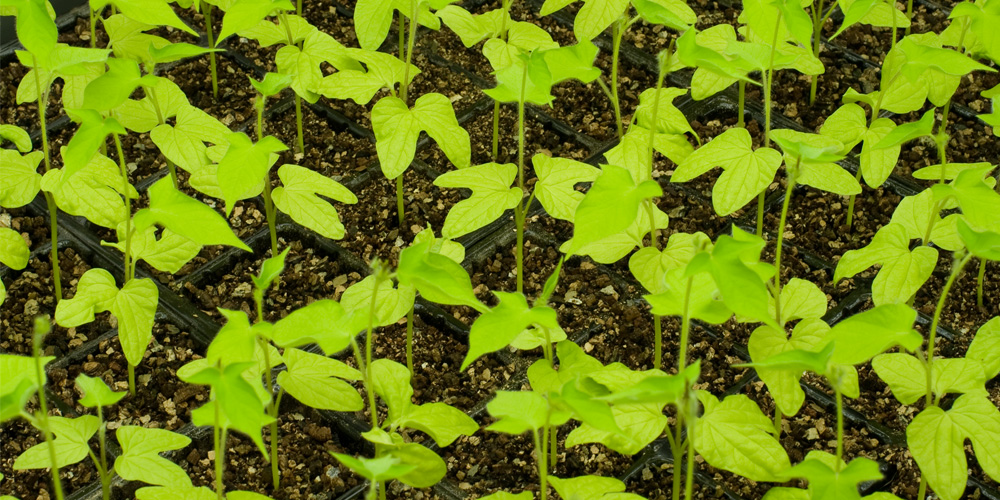


| Venue | Max Planck Institute for Plant Breeding Research, Cologne, Germany |
|---|---|
| Date | Aug. 25-27, 2009 |
基礎生物学研究所とマックス・プランク植物育種学研究所によって締結された学術交流協定の事業の一環として、第一回植物科学合同シンポジウム” Japanese-German Symposium on Evolution and Development”が2009年8月25日~26日、ドイツ・ケルンにて開催されました。
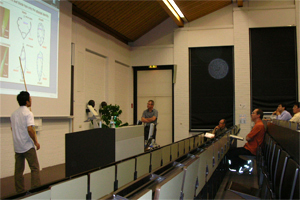
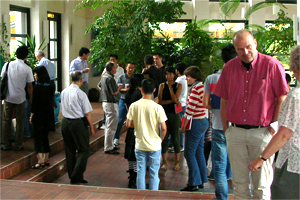
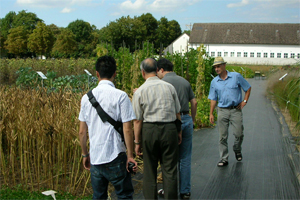
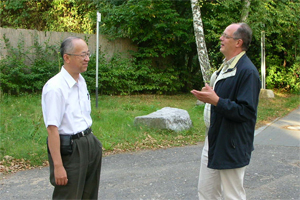
NIBB formalized an Agreement with Max-Planck Institute for Plant Breeding Research (MPIZ, at Cologne, Germany) in April, 2009. This agreement aims to promote intellectual, educational and technological exchange between researchers and students of Japan and Germany by joining NIBB and MIPZ as national hubs of scientific cooperation in the field of plant science. As the first joint activity, a Japanese- German Symposium on Evolution and Development was held at MPIZ in Cologne from August 25 to 26.
NIBB began gathering applicants who wished to attend the symposium and are planning possible collaborative research with researchers of MPIZ through e-mail networks, and selected seven researchers from the applicants. At the symposium the Japanese delegation, consisting of the seven applicants and five PIs of NIBB plant science laboratories, participated in discussions with researchers and students of MPIZ, Cologne University, and other universities and institutes of Germany. After the symposium, on the morning of August 27, individual talks were held between Japanese and German researchers with the aim of starting possible collaborative research. In the afternoon of August 27, Japanese researchers visited the Demonstration Garden and Wissenschaftsscheune (Science Barn) of MIPZ, which was founded for the purpose of giving the public an opportunity to experience several aspects of plant science including Mendel’s law, domestication of crops, and GMO plants.
As a continuing activity, NIBB supports the traveling costs of three Japanese researchers who visit MIPZ for collaborative research projects which arose from attending the Symposium.
| Tuesday, August 25 | ||
| Session 1 Chair: George Coupland | ||
| 09.00-09.15 | Maarten Koornneef | Welcome and introduction to MPIZ |
| 09.15-09.30 | Kiyotaka Okada | Greeting and introduction to NIBB |
| 09.30-10.00 | Klaus Theres | Control of shoot branching in tomato and Arabidopsis |
| 10.00-10.30 | Takahiro Yamaguchi | Genetic basis for evolution and development of unifacial leaves in monocots |
| 10.30-11.15 | Coffee break | |
| Session 2 Chair: Kazumi Nakabayashi | ||
| 11.15-11.45 | Wolfgang Werr | The Evolution of Plant Stem Cell Niches |
| 11.45-12.15 | Kiyoshi Tatematsu | The role of miRNA in leaf development along the adaxial-abaxial axis in Arabidopsis thaliana |
| 12.15-12.45 | Martin Hulskamp | Trichome patterning: towards mathematical modelling |
| 12.45-14.30 | Lunch | |
| Session 3 Chair: Martin Hulskamp | ||
| 14.30-15.00 | Naoyuki Uchida | Analysis of influences of CC-NB-LRR-related signaling on meristem regulation |
| 15.00-15.30 | Marcel Bucher | Development of a functional interface in the arbuscular mycorrhizal symbiosis |
| 15.30-16.00 | Shinjiro Yamaguchi | Regulation of shoot branching by strigolactones |
| 16.00-16.30 | Coffee break | |
| Session 4 Chair: Ryosuke Hayama | ||
| 16.30-17.00 | Franziska Turck | The Role of Repressive Chromatin in Flowering Time Control |
| 17.00-17.30 | Mitsuyasu Hasebe | Molecular mechanisms of regeneration to form pluripotent stem cells in Physcomitrella patens |
| 17.30-18.00 | Seth Davis | Redox stress is a major component of circadian-clock resetting in response to dawn |
| 18.00-18.30 | Katsuyuki T. Yamato | The liverwort Marchantia polymorpha L.: an emerging model plant for comparative genomics with molecular and genetic tools |
| Wednesday, August 26 | ||
| Session 5 Chair: Maarten Koornneef | ||
| 09.00-09.30 | Maria von Korff | Genetic dissection of flowering time control in barley |
| 09.30-10.00 | Yasuyuki Takahashi | The molecular mechanism for generating diversity in flowering time of cultivated rice |
| 10.00-10.30 | Christiane Gebhardt | Genetic and molecular analysis of complex traits in potato |
| 10.30-11.30 | Coffee break | |
| Session 6 Chair: Maria von Korff | ||
| 11.30-12.00 | Rie Terada | Efficient rice gene targeting; a powerful tool for novel molecular breeding |
| 12.00-12.30 | Matthieu Reymond | Genetic and molecular basis of plant’s responses to environment using Arabidopsis thaliana natural variation |
| 12.30-13.00 | Nobuyuki Maruyama | Towards developing a system for improving physiological functions of crops for human health |
| 13.00-14.30 | Lunch | |
| Session 7 Chair: Yusuke Saijo | ||
| 14.30-15.00 | Imre Somssich | The role of WRKY transcription factors in plant immunity |
| 15.00-15.30 | Masayoshi Kawaguchi | Long-distance control of nodulation via nod factor / nitrate-induced CLE signaling |
| 15.30-16.00 | Renier van der Hoorn | Mining the active proteome |
| 16.00-16.30 | Coffee break | |
| Session 8 Chair: Paul Schulze-Lefert | ||
| 16.30-17.00 | Kenji Yamada | Mechanisms underlying endoplasmic reticulum body formation in Arabidopsis |
| 17.00-17.30 | Silke Robatzek | Cellular dynamics in plant immunity |
| 17.30 | Yusuke Saijo | Receptor quality control in microbe-associated molecular pattern-triggered immunity and beyond |
| Thursday, August 27 | ||
| 11:00 | WissenschaftsScheune and show garden Individual programmes | |